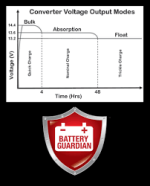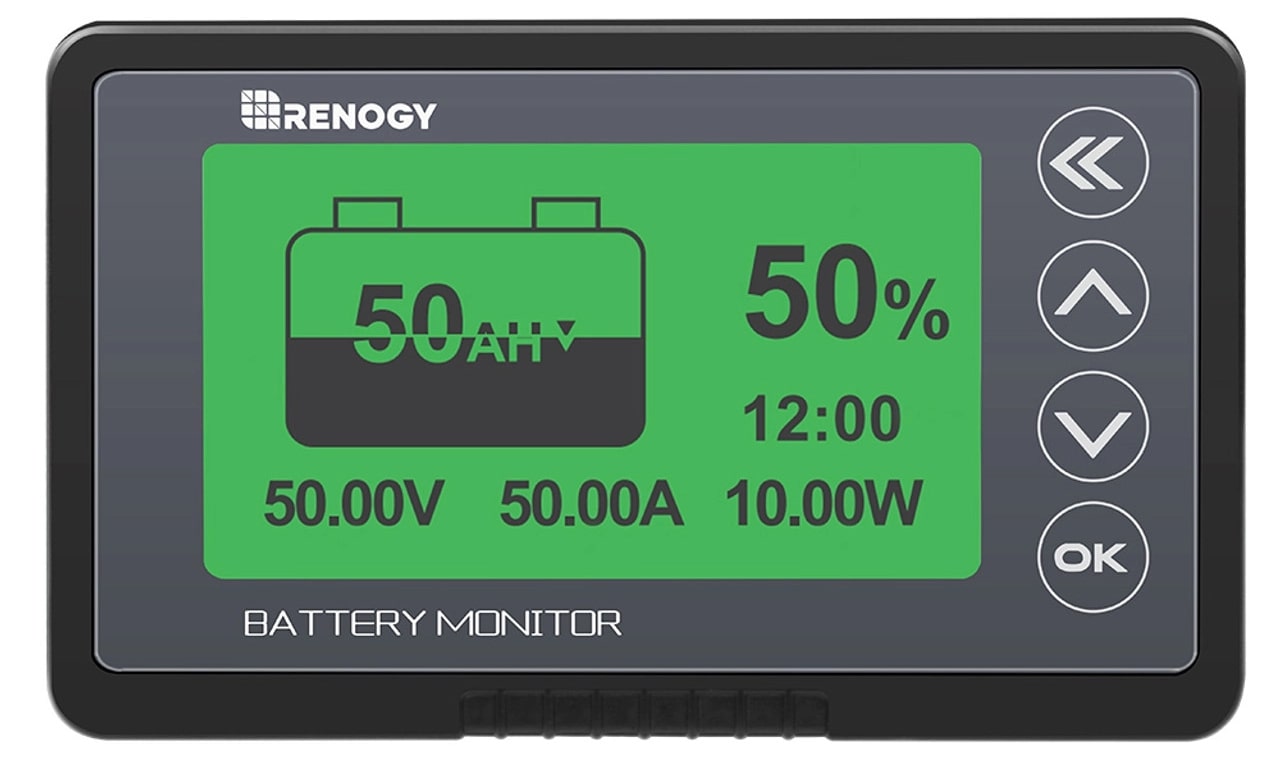You should also mention what battery you actually have. Most modern LifePO4 batteries have a BMS inside them. If they do, the BMS will control the actual charging cycle automatically, and the specs are more about what you can expect about the maximums, like how long it should take to charge (a higher output converter will charge your batteries faster). Unless you're building your own packs, the manufacturer has almost certainly configured the actual parameters to a safe range.
The issue with converters not "supporting" lithium batteries is because lead-acid batteries never have a BMS. The converter IS the BMS. So the converter won't put out a constant voltage - it will run a charging "program" with phases like boost/topping/float. And while a lead acid battery at 12.9V is "fully charged", a lithium battery isn't full until it hits like 13.6V. The DC-DC converter may "stop charging" the lithium battery before it's full.
But it's usually not that bad. DC converters can't know for sure when a battery is empty so they look at the current draw to help decide what phase the battery is in. They then adjust their output voltages so the battery charges at an optimal rate, then lower it as the battery fills up. The popular PowerMax WFCO program looks like this. You can see how it will start with a boost then taper off:

Well, the trick is lithium batteries charge at very high rates ANYWAY. Most of the time the DC converter will see a high current draw as the BMS in the lithium battery does it thing, so the "bulk" phase goes on longer. My experience with my own batteries and converter (also a WFCO) is that I get about an 85% charge, which isn't perfect but better than you might expect.
If you want to get the most out of your system, you don't need to spend thousands on better converters that know about lithium cells, although you absolutely can if you want to. But if you're willing to set up even a modest solar install, the MPTT charger it uses can run just fine in parallel with your DC converter (even if you're plugged in) and give you the remaining 100% top-off charge in your lithium batteries.
To answer the very first question, while TOWING all of this goes out the window and it's your vehicle's alternator that matters. Unfortunately this is a good/bad thing. Your alternator will kick out 14.8V or more - plenty to charge everything fully. BUT most vehicles' (and trailers') AUX trailer power wires are so small that you get a lot of resistance in them and thus voltage drop. Sometimes when I'm towing I get basically no help at all from the vehicle. Fortunately this is very easy and inexpensive to solve - for about $50 you can get "boost" converters that fix this. They're made specifically for the purpose. I'm not linking to any because I don't have a specific product I've used/would recommend but they're all over Amazon, and easy to install.



